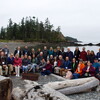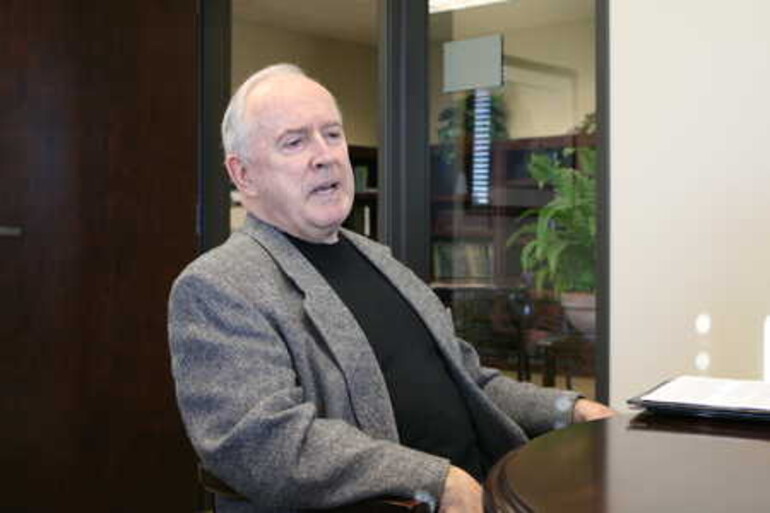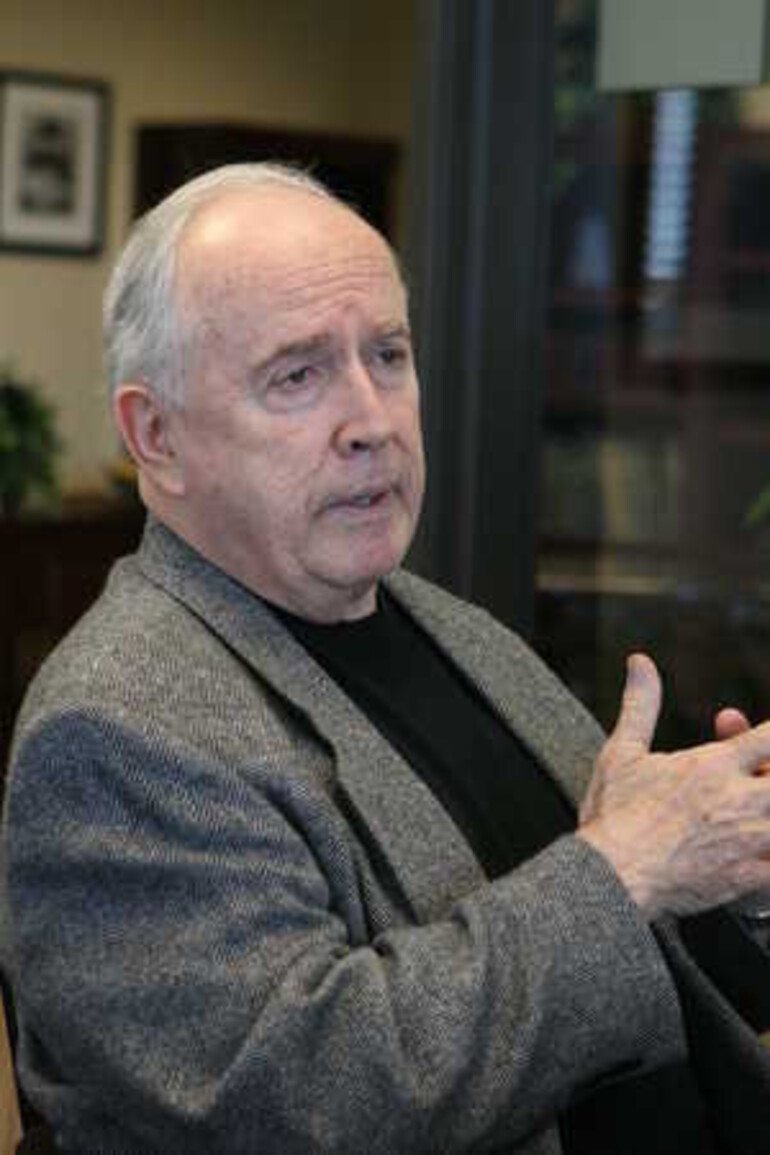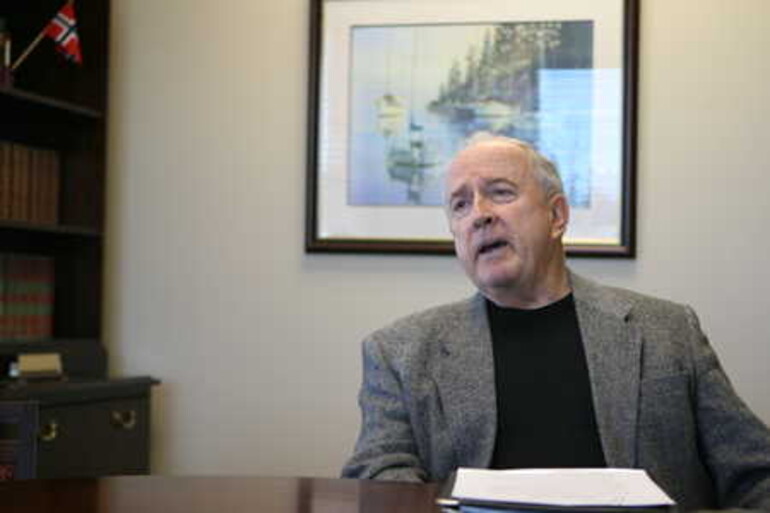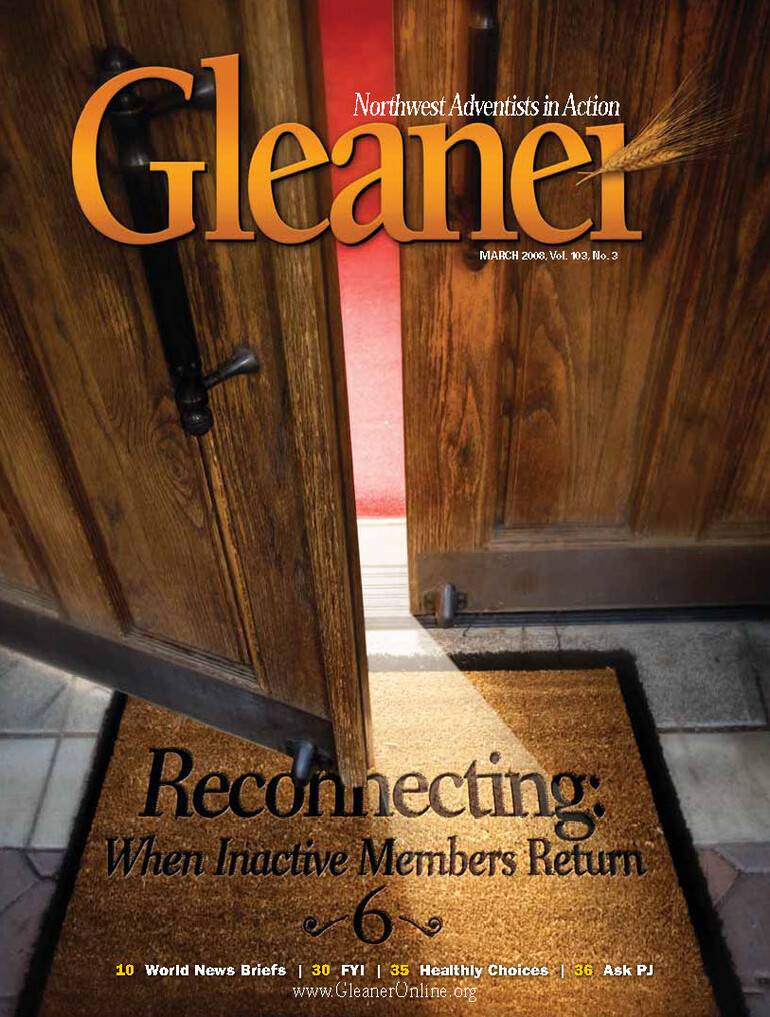Mike Jones grew up in the church, drifted away, and then made the decision to return. He's a former pastor and editor of Insight magazine. Whether you're an active member or not, his experience is worth considering.
GLEANER: Did you "buy in" to the Adventist message early on in your experience?
MJ: Well, very early on I was pretty enthusiastic. I was baptized at age 11 and a few days later my mother found me out in an empty field next to our house with sickle and garden hoe, clearing some ground to pitch a tent for evangelistic meetings. I wanted to tell people Jesus was coming soon! Mother stopped me, but I've always wondered what would have happened if she had encouraged me instead.
What sticks out in your mind about your early Adventist upbringing?
MJ: My father was agnostic, so my mother was the dominant religious influence. I don't think she understood grace very well, but she knew a lot about the investigative judgment. I used to worry that if I had even one unconfessed sin on God's record books, my goose would be cooked for eternity. Dad was handy with a belt, so I learned early on there was a price to pay for making either God or my parents unhappy. Life in my early and teenage years was lots of do's and don'ts. Not much grace. Not much fun. When I graduated from the youth Sabbath School to the adult division, I still hadn't found grace. The closest I came was a blue-eyed blonde named Grace who I fell in love with when I was 14, but that's another story!
But fun or no fun, you believed the Seventh-day Adventist Church taught the truth?
MJ: Yes, but when I was a kid, "the truth" mostly meant that Sunday laws were about to occur, and Jesus would most likely be returning in about five years. So I hung in with the church. I wasn't ready to bail. As a teen, I thought the church would be my ride to Heaven.
So for some years you found it worthwhile to stay with the church.
MJ: Sure, I got married, had a nice family and, outwardly, was doing quite well. I was on a corporate fast track in the business world, but inside I had some serious problems. I was a closet smoker and realized it was doing a number on my physical and spiritual health. I was churched, but I certainly didn't know Jesus. When I saw where I was headed, though, and got desperate, I told God, "Take me, I'm yours." Not only did He help me quit smoking, He gave me a new heart, a new nature and a whole new sense of freedom. I went on from that experience to enjoy an amazing time as the second editor of Insight magazine, then successful stints pastoring in Oregon and Alaska.
So, if your spiritual life was on an upswing, what prompted you to leave the church?
MJ: I left the church in 1983 because of a divorce. At the time I was serving as associate director of the ministerial association for the Southwestern Union Conference. But with my marriage broken I felt my continued membership would be an embarrassment to the church. No one said, "Don't go." So I left. I kept the Sabbath in my own way, but I stopped attending church services. It took me 16 years to return.
You weren't bitter, you didn't disagree with any doctrines, but you began to drift.
MJ: Yes, I started sleeping in on Sabbath, which wasn't hard to do. And I thought, well, I'm still reading my Bible and praying. Growing up with no siblings, I'd had a lot of alone time, so doing things on my own didn't bother me. I enjoyed being lazy. I was thinking at that time I would just stay away for a year or two and then go back. I never expected to be gone for 16 years.
What factors led you back to the church?
MJ: Believe it or not, a woman I met at a country western dance helped bring me back. So did the book by Ellen G. White Steps to Jesus, which is a modern language version of Steps to Christ. Diane was a successful business analyst, and during our dates we began discussing the Bible. The seventh-day Sabbath, which I still observed despite being out of the church, was of special interest to Diane. Those discussions led us (Diane and I eventually married) to begin visiting Adventist churches in our area. And by the time I finished reading Steps to Jesus, I was saying to myself, "They can say whatever they want about Ellen G. White's prophetic gift, but this woman was inspired by God." Her writings played a major role in my decision to rejoin the Adventist church.
How were you received when you came back?
MJ: Well, it didn't happen quickly or easily. In fact, when Diane and I share our story in public, we say, basically, we fought our way into the Adventist church. We had to get used to the fact most members were not going to be overly friendly. We finally realized we needed to be the ones reaching out. So we created a seminar and taught the members of the church we joined to reach out beyond their own comfort zone. We've enjoyed visiting some of our Northwest congregations with that message.
In your experience, what are some things that cause an inactive member to begin coming back to church again?
MJ: I think it's always a Holy Spirit moment when someone decides to come back. During my 16 years away, I would occasionally visit a nearby church, and if someone acknowledged my existence at church, that was always a plus. But most of the time, once I got by the greeters, no one would talk to me. Church members need to practice caring about people they don't know. You never know when the stranger sitting near you might be the one who came that day in response to the Holy Spirit's tug. They're right on the edge—deciding if it's worth coming back a second time. Your howdy or friendly handshake can make you the difference-maker.
Is it possible that some of us who have been Adventists the longest, have the most to learn about connecting with guests?
MJ: Interesting you should say that. When I finally began visiting local Adventist churches again, a new Adventist—a former cocktail hostess—was one of the greeters. She came sprinting out into the parking lot when we drove up and greeted my wife as she got out of the car and walked us all the way into the sanctuary. That really warmed our hearts, and it was the church we finally joined. Back when I was still pastoring, I liked to spend time out in the lobby, getting to know people I hadn't met. Then I would rejoin the elders and go on the platform. One day they said, "Pastor, we really like what you're doing out there in the lobby." And I replied, "Any chance you might join me?" They did. And, oh, how that church grew during the next several years. If we all would make ourselves a committee of one to make our guests feel welcome, I believe many former or inactive members would be encouraged to come back.
If I'm an inactive or former member, why should I return?
MJ: I think we're saved to serve. And that means loving other people: a handshake, a smile, a gentle squeeze on the shoulder—little acts of love that bring meaning to our lives as well as those around us. Here's a second reason: There's something transcending about praising God with others that just stirs the soul. And thirdly, I've figured out I can do more for the Lord as part of a team effort than I can ever do as a "lone ranger" operating by myself. I'll bet you can too.
So how should our members relate to former or returning members?
MJ: Some have left us and never want to come back. But there are a large number who have simply gotten busy with other things and drifted away when no one called to say, "Hey, we've been missing you." We not only need to make our churches guest-friendly, but we also need to reach out beyond our four walls to connect with those who are otherwise "out of sight, out of mind." Not everybody will fight to get back in like I did. There are tens of thousands of inactive or former members who need to know we want them back.
Editor's Note:
You may consider yourself a Seventh-day Adventist, yet find regular involvement in church services or functions uncomfortable or inconvenient. You may show up once in awhile to keep in touch with church member friends ... or not. Perhaps you've had a discouraging experience with church leadership or another member. But you stay in touch with the GLEANER. Now that you've read Mike's story, what's your story? Pro or con, we'd like to hear from you at talk@gleaneronline.org.
